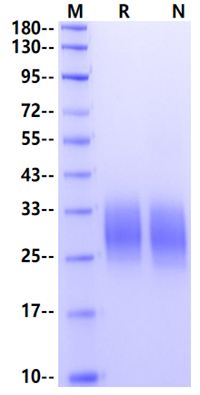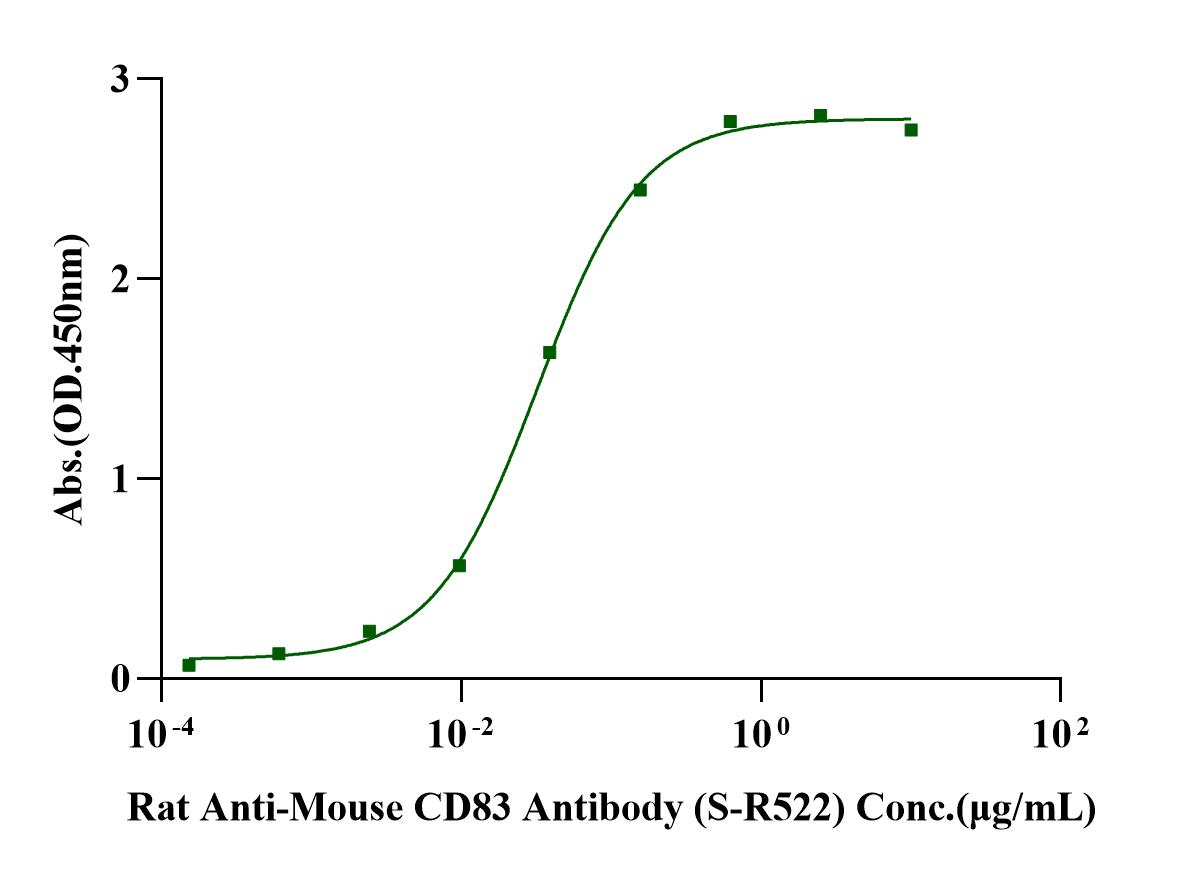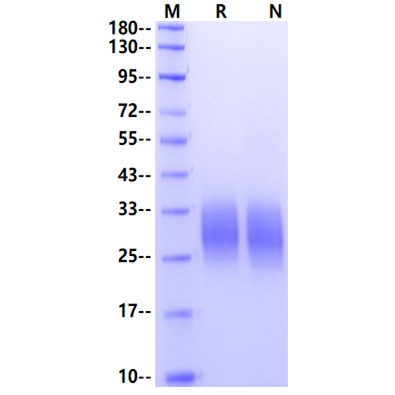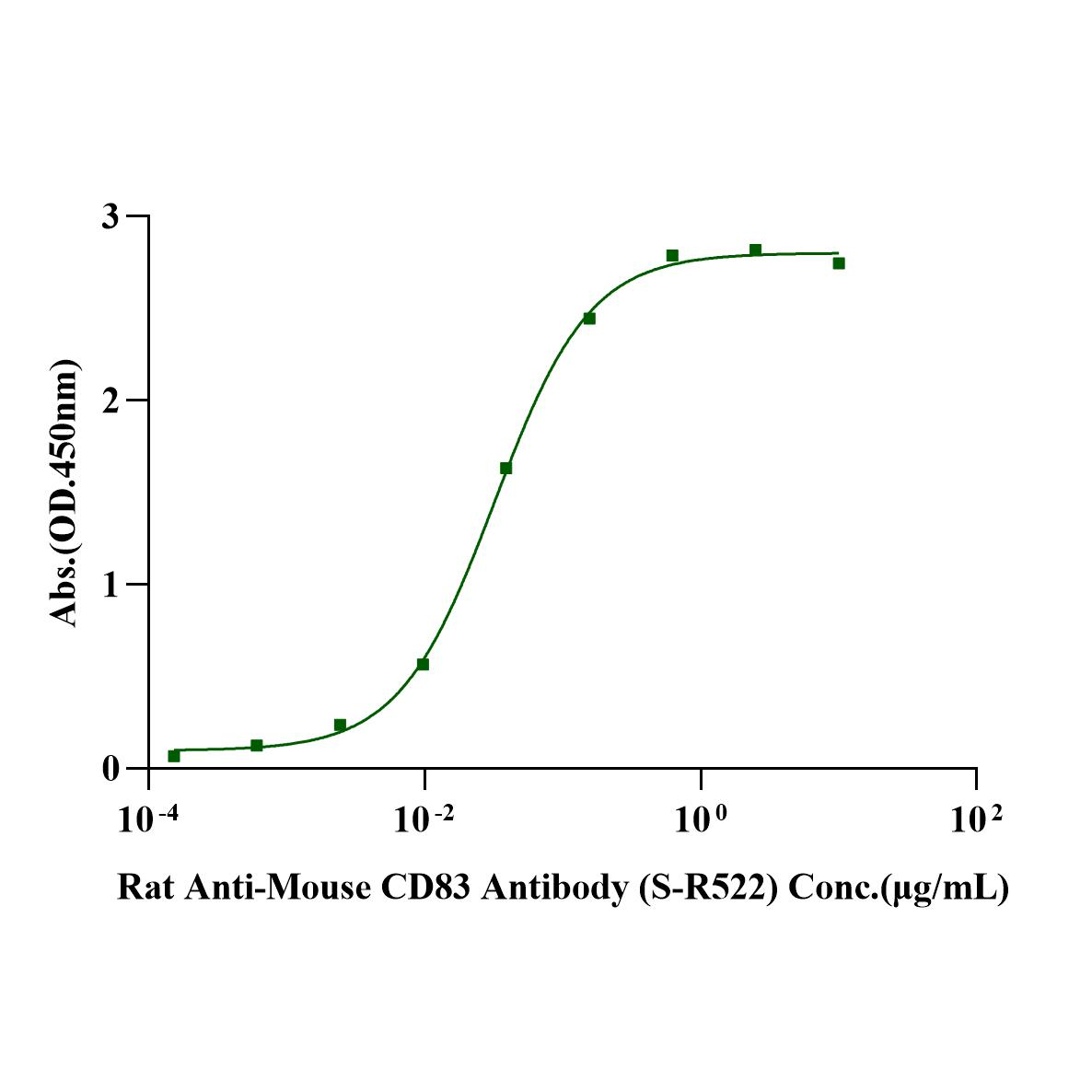Product Details
Product Details
Product Specification
| Species | Mouse |
| Antigen | CD83 |
| Synonyms | B-cell activation protein; BL11; BL11CD83 antigen; CD83 antigen (activated B lymphocytes, immunoglobulin superfamily); CD83 molecule; CD83; Cell surface protein HB15; cell-surface glycoprotein; HB15; HB15hCD83 |
| Accession | O88324 |
| Amino Acid Sequence | Met22-Arg133, with C-terminal 8*His MREVTVACSETADLPCTAPWDPQLSYAVSWAKVSESGTESVELPESKQNSSFEAPRRRAYSLTIQNTTICSSGTYRCALQELGGQRNLSGTVVLKVTGCPKEATESTFRKYRGGGSHHHHHHHH |
| Expression System | HEK293 |
| Molecular Weight | 25-33kDa |
| Purity | >95% by SDS-PAGE |
| Endotoxin | <0.1EU/μg |
| Conjugation | Unconjugated |
| Tag | His Tag |
| Physical Appearance | Lyophilized Powder |
| Storage Buffer | PBS, pH7.4 |
| Reconstitution | Reconstitute at 0.1-1 mg/ml according to the size in ultrapure water after rapid centrifugation. |
| Stability & Storage |
· 12 months from date of receipt, lyophilized powder stored at -20 to -80℃. · 3 months, -20 to -80℃ under sterile conditions after reconstitution. · 1 week, 2 to 8℃ under sterile conditions after reconstitution. · Please avoid repeated freeze-thaw cycles. |
| Reference | 1.Carenza C., Calcaterra F., Oriolo F., Di Vito C., Ubezio M., Della Porta M.G., Mavilio D., Della Bella S. Costimulatory Molecules and Immune Checkpoints Are Differentially Expressed on Different Subsets of Dendritic Cells. Front. Immunol. 2019;10:1325. |
Background
CD83 is synthesized as a type I transmembrane glycoprotein that contains a 114 amino acid (aa) extracellular region, a 22 aa transmembrane segment, and a 39 aa cytoplasmic domain. Among costimulatory molecules, CD83 has the function of promoting the expression of other activation markers such as CD86 and the MHC class II. A variety of immune cells, including B cells, thymus-epithelial cells (TECs), T cells, DCs, and neutrophils, are known to express the CD83 molecule. CD83 is essential for the activation of T cells that regulate peripheral immune responses. CD83 is one of the markers of matDCs, as CD83 is highly expressed during DC maturation. The CD83 molecule has been identified to be expressed on many activated immune cells, including B and T lymphocytes, monocytes, dendritic cells, microglia, and neutrophils. CD83 is not a typical co-stimulatory molecule, but rather plays a key role in controlling and resolving immune responses. In addition, CD83 is an important factor in the differentiation of T and B lymphocytes and in the development and maintenance of tolerance.Two isotypes of CD83, a membrane-bound form and a soluble form.
Picture
Picture
SDS-PAGE

ELISA

Immobilized CD83 His Tag Protein, Mouse (Cat. No. UA010502) at 2μg/mL (100μL/well) can bind Rat Anti-Mouse CD83 Antibody (S-R522) (Cat. No. S0B1134) with EC50 of 27.81-37.18 ng/ml.




